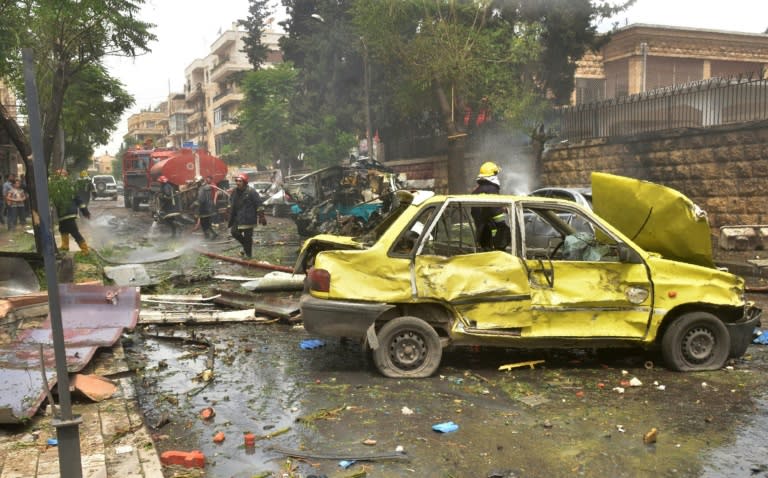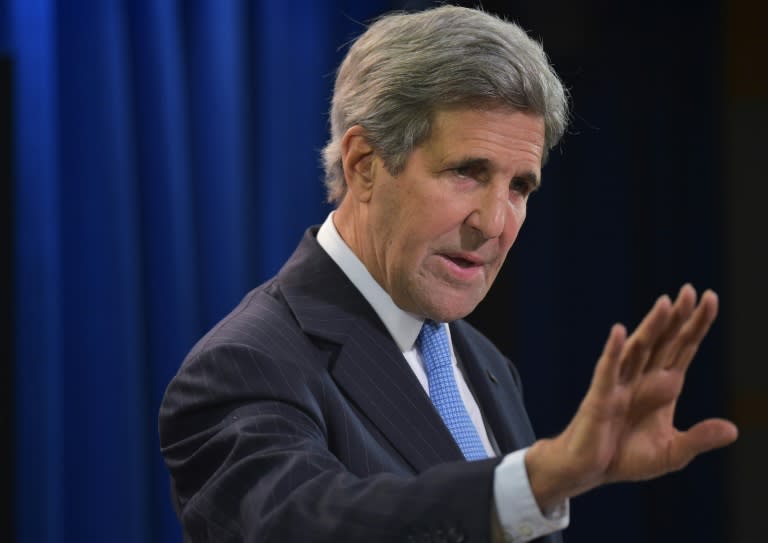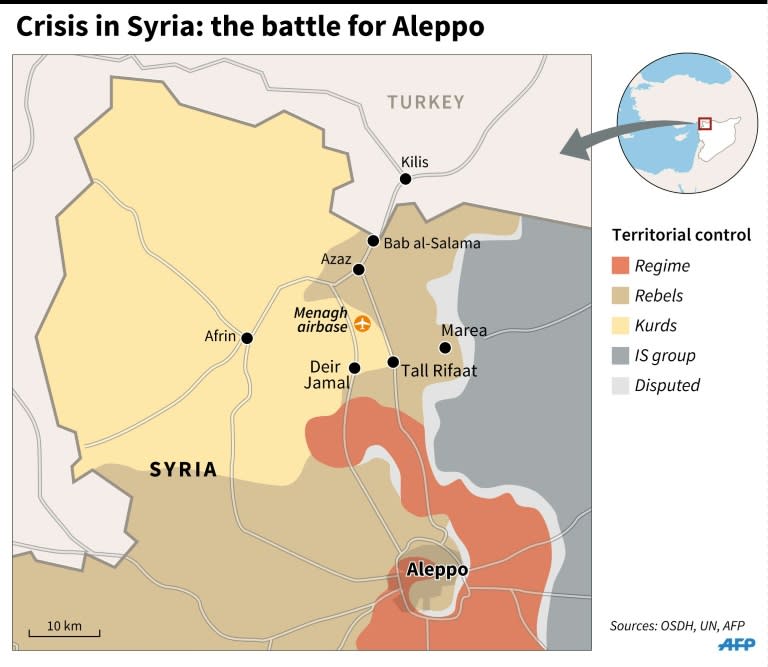Battles rage in Aleppo as diplomats scramble to save truce
Fierce fighting raged in the war-ravaged Syrian city of Aleppo and air strikes pounded rebels east of the capital Damascus on Wednesday as diplomats scrambled to salvage a collapsing truce. Intense international efforts to bring a halt to the latest surge in Syrian fighting continued, with talks between senior diplomats in Berlin and the UN Security Council set for an urgent meeting later Wednesday. The renewed violence has threatened the complete breakdown of a landmark ceasefire between President Bashar al-Assad's regime and non-jihadist rebels brokered by Moscow and Washington in late February. Fighting has been especially intense in and around Syria's devastated second city of Aleppo, with more than 280 civilians killed since April 22. Some of the heaviest clashes in Aleppo in months continued on Wednesday as rebel forces pressed an offensive against regime troops on the city's western outskirts, a monitor said. Rami Abdel Rahman, head of the Syrian Observatory for Human Rights, said the fighting was "the most violent in Aleppo in over a year". The rebels have fired a barrage of rockets into regime-held neighbourhoods in western Aleppo in recent days, with three more civilians killed in the attacks early on Wednesday, Syrian state news agency SANA said. Regime warplanes were hitting the advancing rebels, giving opposition-held areas of eastern Aleppo a respite from air strikes, an AFP correspondent in the city said. Suspected regime strikes also pummelled the rebel stronghold of Eastern Ghouta near Damascus, the Observatory said, after a temporary freeze on fighting in the area expired overnight. - Flurry of talks - The district was hit with at least 22 air strikes, but there was no immediate word on casualties, it said. Russia had said on Tuesday it hoped a new ceasefire for Aleppo could be agreed "within hours" but on Wednesday said truce efforts had been stymied by jihadists. Russian military spokesman Igor Konashenkov said a plan had been agreed for a "regime of silence" in and around Aleppo but fell apart following rocket attacks by Al-Nusra Front, an Al-Qaeda affiliate. In Berlin, German Foreign Minister Frank-Walter Steinmeier and French counterpart Jean-Marc Ayrault held talks with UN Syria envoy Staffan de Mistura. After the talks, De Mistura issued a plea for a halt in fighting in Aleppo. "The alternative is truly quite catastrophic, because we could see 400,000 people moving towards the Turkish border," said De Mistura, who this week met US Secretary of State John Kerry and Russian Foreign Minister Sergei Lavrov. Steinmeier, who also met with Syria's main opposition leader Riad Hijab, said "the terrible images from Aleppo in recent days" showed "what is at stake" in the conflict. "Either we put peace efforts back on track... or we risk falling back into escalation, into an explosion of violence and the continuation of the civil war." The United Nations said the Syrian government had refused a request for aid access to rebel-held eastern Aleppo, warning that the area could soon be besieged. "The horrific fighting and bombardment in recent days, especially in and around Aleppo, is creating new areas with endless suffering and no access for humanitarians," Jan Egeland, who heads an international humanitarian taskforce for Syria, said in Geneva. - 'Syria's Sarajevo' - The diplomatic push aims to bring the ceasefire back from the brink and to restore hope for peace talks aimed at finally resolving a five-year war that has left more than 270,000 dead and forced millions from their homes. France on Wednesday announced it would also host talks with the Saudi, Qatari, Turkish and Emirati foreign ministers next week. The countries are all key backers of the Syrian opposition, and French government spokesman Stephane Le Foll said the Monday meeting would focus on efforts to move deadlocked peace talks forward. Wednesday's Security Council meeting was called by France and Britain to discuss the situation in Aleppo, with envoys demanding an urgent solution. "(Aleppo) is to Syria what Sarajevo was to Bosnia," France's UN ambassador Francois Delattre said. Syria's conflict erupted in 2011 after anti-government protests were put down, escalating into a multi-front war with consequences including the seizure of large parts of the country by the jihadist Islamic State group. A US-led coalition of countries battling IS in Syria and Iraq pledged Wednesday to pour more resources into the fight, after coming under strong pressure from Washington for greater contributions. In a joint statement after a meeting led by US Defence Secretary Ashton Carter in Stuttgart, coalition members pledged "the deployment of additional enabling capabilities in the near term" in order to defeat IS.







